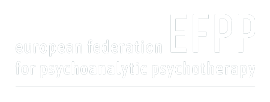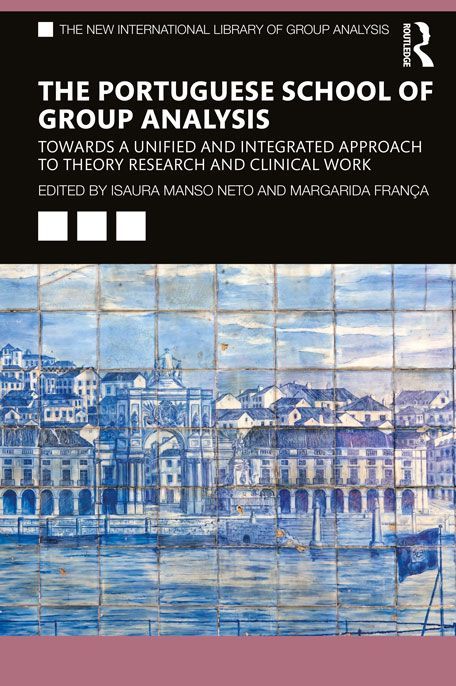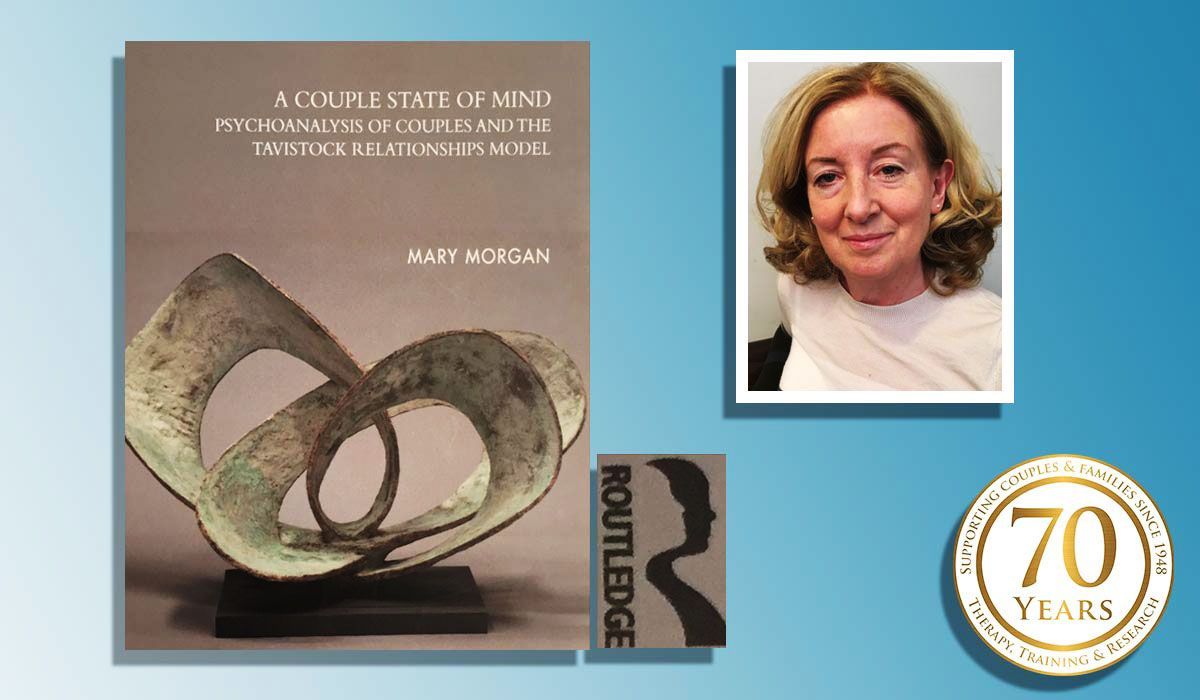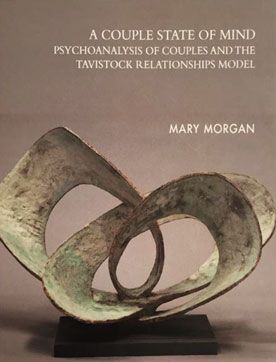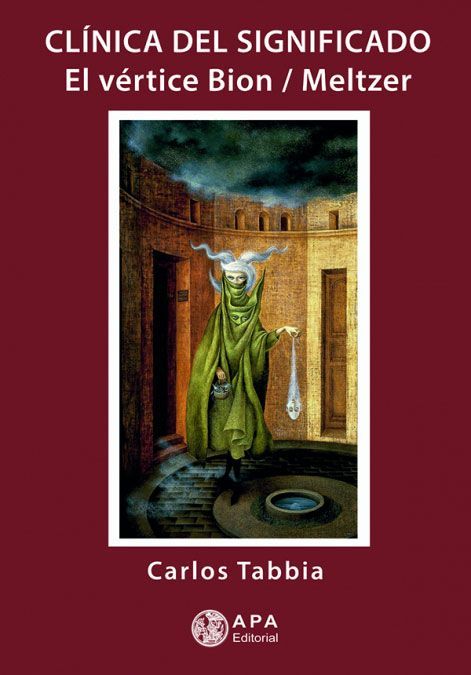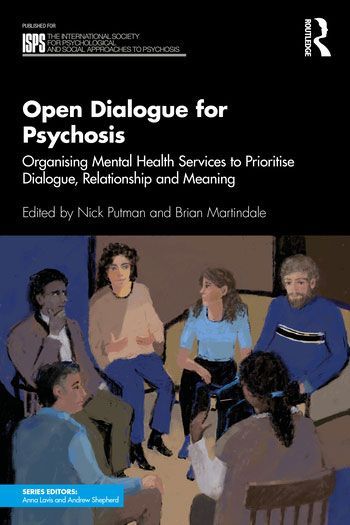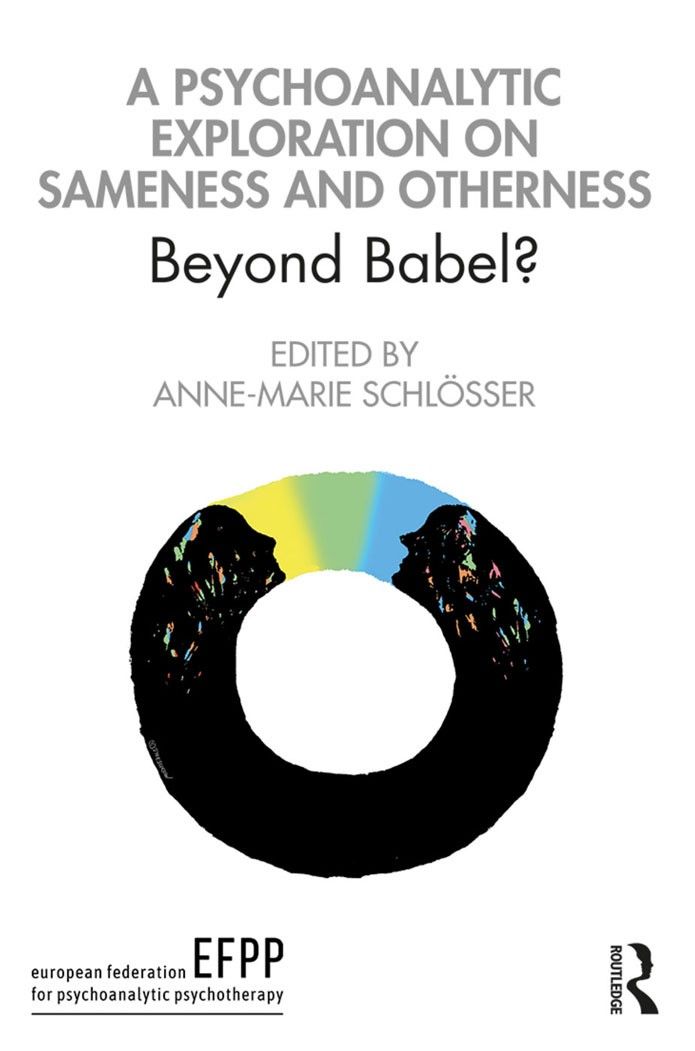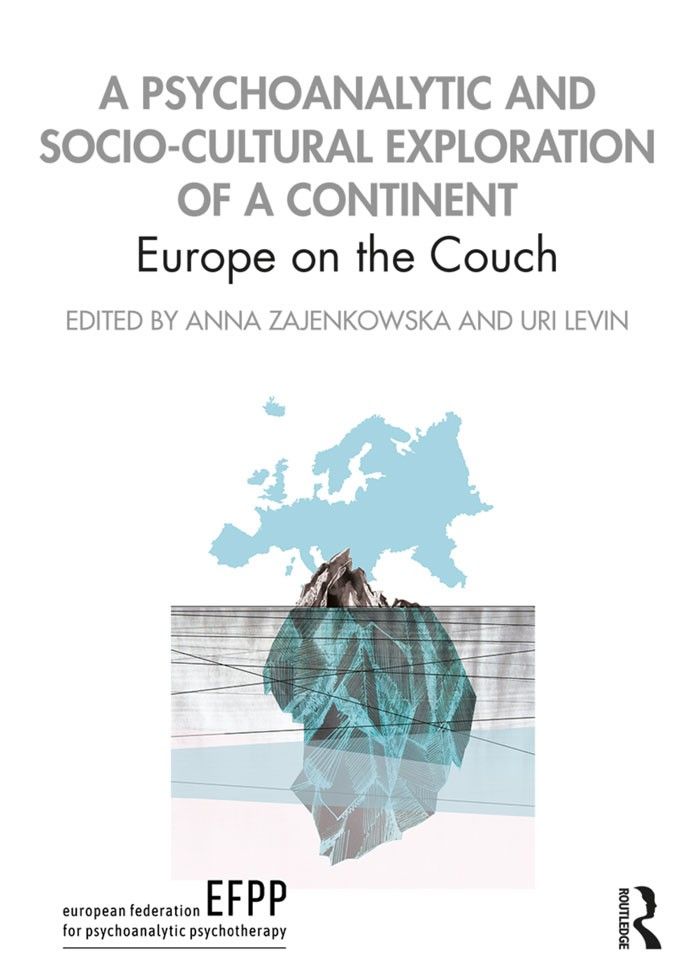Upcoming Events
News
Upcoming Events
if you are looking for past events
click left arrow down <
News
TABLE OF CONTENTS
- Obituary John Tsiantis, 1939-2023
- Lydia Tischler: Holocaust survivor wins The Times/Sternberg Active Life award for work in therapy
- The Portuguese School of Group analysis -Books-
- Mary Morgan – A Couple State of Mind -Books-
- Carlos Tabbia – Clínica del significado. El vértice Bion/Meltzer -Books-
- Open Dialogue for Psychosiss -Books-
- EFPP Book Series “A Psychoanalytic Exploration On Sameness and Otherness. Beyond Babel?” -Books-
- EFPP Book Series “A Psychoanalytic and Socio-Cultural Exploration of a Continent – Europe on the Couch” -Books-
- Pia litzell Berg & Christina Lloyd -Welcome-
- Hanne-Sofie Johnsen Dahl -Welcome-
- Martine Vermeylen -Welcome-
May 10, 2023
In Memory
Obituary John Tsiantis, 1939-2023
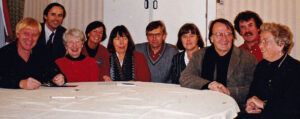
Effie Lignos & Brian Martindale
John and the EFPP
It is with much sadness that we report to the EFPP community the passing of John Tsiantis, who was the first EFPP vice-president from 1991 for several years. It will be clear from what follows that through his activities he epitomised all that the EFFP stands for. He was an organisational genius in accessing and making use of European contacts and funds for the development of innovative joint projects that provided services, training and research. He spent some years in the UK gaining experience of child and adolescent psychiatry services and underwent psychoanalytic psychotherapy training, returning to Greece to lead extensive developments.
He believed firmly in the relevance of the EFPP to which he gave of his best. In the early years, he was a wonderful support to Brian Martindale, the EFPP’s first chair. With the foundation pillars of the EFPP being its three sections standing alongside one another but not competing, he put the child and adolescent section firmly on the map by organising in 1994 in Athens the first EFPP child and adolescent section conference. This was a great success, drawing a large European attendance. He then started the EFPP book series becoming its first Editor-in-Chief. The series is now 21 strong. https://www.karnacbooks.com/SeriesDetail.asp?SID=87. The first monograph he edited was entitled Countertransference in Psychoanalytic Psychotherapy with Children and Adolescents, probably the first book on the topic. How lucky the EFPP was to have had John, Lydia Tischler and Birgit Hallerfors as its first three child and adolescent section representatives.
Many will remember the ongoing bi-annual Syros Summer Workshop for Psychoanalytic Studies meetings on the Greek Island of Syros where a small number of EFPP members would gather to discuss a theme. These were initiated in 1998 by John in collaboration with Dimitris Anastasopoulos and Effie Lignos.
John had trained in child and adolescent psychiatry in the UK, working in the Child Guidance Training Department at the Tavistock Clinic with Salo Tischler and at the same time training in psychoanalytic psychotherapy with the British Association of Psychotherapy.
Child and adolescent psychiatry in Greece
On returning to Athens from England John introduced a plethora of psychiatric reforms in mental health services for children and adolescents throughout the late 1980s and into the 1990s.
Initially single handed, he started the Clinic for Psychological Medicine at the ‘Aghia Sofia’ Children’s Hospital (later becoming the Child Psychiatric Clinic, attached to the School of Medicine of Athens University). This was based on his experience of UK models. There, hundreds of mental health professionals and postgraduate medical students were introduced to psychodynamic ideas. John Tsiantis fought for the recognition of child psychiatry as a separate specialization. He is generally recognized as the first Professor of Child Psychiatry in Greece although for some years the medical establishment withheld the recognition of Child Psychiatry as a separate discipline.
His vision inspired many of us Greeks to leave our careers abroad and follow his example, returning to Greece to work alongside him for institutional changes in the mental health services for children and adolescents.
He collaborated with municipalities of both troubled areas of Piraeus and remote areas of Greece to set up child and adolescent mental health services, providing supervision and seminars through visiting teams.
He took great care to develop training programmes for health visitors and other primary health care professionals who worked with children and adolescents. These programmes were mostly funded through initiatives that John developed with the European Union.
Closing the asylums
He also undertook the huge project of reforming the Leros asylum. Through the Hellenic Association for Child and Adolescent Psychosocial Health (‘The children of PIKPA Leros’, British Journal of Psychiatry, vol. 165, 1995) he organised a team of experienced colleagues to offer an alternative to the Leros asylum, where all the unwanted children due to psychiatric disorders, or severe educational incapacities, were deposited. The development of a network of hostels as family units within the community offered these children conditions of feeling respectable human beings, reconnecting them with their families, when possible. One example of the obstacles he faced was the need to overcome and battle against the upper middle-class residents of an affluent Athens suburb who tried to block the operation of one of these protected homes. The project expanded to provide day centres for adolescents, and a home for children who couldn’t be cared by their own parents. This was one of John’s great achievements, which acquired international attention and awards.
Sadly, in recent years Government funding has failed to sustain some of these projects.
Child and adolescent psychoanalytic psychotherapy in Greece
He initiated child psychotherapy in the public sector providing basic training to the staff by inviting senior child psychotherapists from ACP (UK) and enhancing the clinical skills of colleagues within and outside the Clinic. For this he elicited financial support from donors. It was his initiative that led us in 1991 to create the Hellenic Association of Psychoanalytic Psychotherapy for Children & Adolescents (HACAP), serving as President for many years. This organisation has long been an active member within the EFPP. He also developed the Association’s journal: “Child and Adolescent: Mental Health and Psychopathology”.
Adult psychoanalytic psychotherapy in Greece and Cyprus
He also contributed considerably to adult psychoanalytic psychotherapy in Greece and to Cyprus. In 1977 he was among the co-founders of the Greek Association of Psychoanalytic Psychotherapy, and he remained a member throughout the rest of his life. He actively promoted the training of Cypriot colleagues. In collaboration with Dimitris Anastasopoulos he started the Cypriot Association of Psychoanalytic Psychotherapy.
As can be imagined, John had vision, will and conviction. He could recognize the potential of every colleague and was always pushing, sometimes subtly and sometimes with more force, to extract from everyone their maximum capabilities. He had the ability to make everyone feel special and unique. His psychanalytic stance was always there, facilitating his different roles and activities.
Research
Attending a conference with John was not strictly a scientific exchange. It was an opportunity for new initiatives, new collaborations, and new projects. It was joie de vivre. Very early on he recognized the need for research in the field of mental health and came into contact with colleagues from other European countries in order to collaborate in many research programmes which resulted in numerous publications. His own long list of publications, both in Greek and English, covered a wide variety of subjects.
Judith Trowell, a UK research collaborator writes:
John had first worked in the UK with Professor Issy Kolvin on an important project about patients with learning disability on the island of Lesbo and another based in Athens ,Milan and London looking at mental health disturbances in children with haemophilia or β-thalassaemia. More joint research developed following Professor Kolvin’s move to the Tavistock Clinic and the Royal Free hospital with John committed to including the psychoanalytic viewpoint in all this work.
Standing out was an exciting and creative international study into childhood depression, involving London, Athens and Helsinki. In preparation there were visits to one country or another which involved amazing food , and wonderful sightseeing as well as hard work. John was always on hand making sure things went well and people were cared for properly. The links with Effie Lignos in Athens and Maria Schulman in Helsinki consolidated this. Junior staff came to be trained in London As well as research publications the book “Childhood Depression, A Place for Psychotherapy” was published. John initiated other books and publications.
John will be always remembered as a pioneering spirit, a mentor, a dedicated teacher, a reliable colleague, a tireless inspirer, “brother in arms” and good friend. Everyone has remarked on his kindness and support for the talents of others. He was very cultured, loving music especially. He would often combine his travels with visits to concerts and the opera. Brian remembers particularly his sense of fun and evenings full of laugher, sometimes hilarity after a long days work whilst enjoying a glass or two of wine.
Although he retired in 2006 from his position as Assistant Professor of Child Psychiatry he continued with many different projects in Greece and abroad.
Sadly Government funding became unavailable for some of his national projects and during the last two years his failing health began to take its toll… but we will remember him as a charismatic visionary who embraced psychiatric reform in Greece.
We have send our heartfelt condolences to his wife, three sons and their families.
Effie Ligno
Brian Martindale
Feb 08, 2023
Articles
Lydia Tischler: Holocaust survivor wins The Times/Sternberg Active Life award for work in therapy

The psychotherapist Lydia Tischler, 93,
was sent to Auschwitz at the age of ten JACKY CHAPMAN
Lydia Tischler has been a founding member of the EFPP. She left her home country Czechoslovakia after the war and settled in London. In the 1990’ after the fall of the Berlin Wall and the Iron curtain, she pioneered to develop structures for child and adolescent psychotherapy training in her homeland in very difficult circumstances. Lydia then went on to support the development of psychoanalytic psychotherapy structures in the Baltic countries and further afield in Eastern Europe. She embodies the very essence of the EFPP to develop promote and protect psychoanalytic psychotherapy and is remembered fondly by so many for her wit, her humour and her determination.
Hansjorg Messner, EFPP Vice President & Chair of the Adult Section.We are happy to share this news with you. To read the article from The Times press the button:
Dic 31, 2020
Books
The Portuguese School of Group analysis
Towards a Unified and Integrated Approach to Theory, Research and Clinical Work
– Published by Routledge
We hope to interest you on the unique perspectives of several Portuguese authors about the complexity of the group analytic spectrum, the psychoanalytic influence on the Portuguese model of group analysis, the importance of the group analyst in the process and how he/she manages transference and counter-transference as well as difficult feelings and aggressiveness, with special emphasis on the theoretical concepts of pattern and personal group matrix plus the specificities of the Portuguese training programme.
Isaura Manso Neto and Margarida França, Editors
Reviews
Selection
“This book is essential reading for colleagues who practice group analysis, whether called “group-analysis”, “groupanalysis”, or even “psychoanalytical group psychotherapy”.
Earl Hopper, Series Editor
“The book examines the trajectory of the group-analysis from its original context to its contemporary evolution, making a special contribution to identify the psychoanalytic concepts that are relevant and necessary for the group-analytical practice.”
Alejandro Ávila Espada, PhD, Complutense University, Madrid, Spain
“The book enabled me to understand the basic principles of the Portuguese Group Analysis Institute and of their effort to keep Group Analysis close to the paradigm of psychoanalysis. All in all, the book has solid theoretical and clinical bases, presented in clear writing.”
Angela Sordano, psychologist and psychotherapist, past president of a Psychodrama Italian Association (Apragipsicodramma)
“In articulating this distinctive approach, against the broader historical background of Group Analysis, the authors remind us of its vital international character.”
David Glyn, president, Group Analytic Society International
“This most interesting book puts forward an in-depth discussion of the very nature of our discipline, what is and what is not group analysis, its concepts, research, techniques, practice, and training, and its relation with psychoanalysis.”
Juan Tubert-Oaklander, MD, PhD, psychoanalyst, group analyst, and marriage and family psychotherapist, Marista University of Mérida, Mexico.
“In addition to a wealth of references and numerous practical examples, the book is an inspiring treasure trove for every clinician and practitioner”.
Jutta Gliem, chair of EGATIN
“This book is (…) also a comprehensive and thorough description of its present conceptional understanding of theory, methods and clinical use of group analysis and the requirements in training, which are probably the most demanding in Europe. An engaging and inspiring reading.”
Kristian Valbak, PhD, group analyst and former president of EGATIN
“What a pleasure to be introduced to the Portuguese school of Group Analysis and its prominent figures. The authors present key concepts and lively clinical anecdotes that focus us on the unique presence of each individual, not only on group dynamics, thereby diverging from Foulkes and Bion and connecting group theory and practice to contemporary relational principles.”
Richard Billow, PhD, clinical professor, Adelphi University, New York
“This is a most interesting book about the different identity of Portuguese school of “groupanalysis”. Cortesao, its founder, conceptualized a fascinating framework of three times a week group analysis, which is considered “a psychoanalytic treatment of the individual in and through the group”.
Robi Friedman, group-analyst, former president of the International Group Analytic Society, former chair of the Israeli Institute for Group Analysis
“(…) I am happy to recommend this comprehensive, ambitious and well-written book, which addresses and reflects upon questions that are highly important and urgently need answers.”
Steinar Lorentzen, Professor of Psychiatry, psychoanalyst, group analyst, University of Oslo, Norway
“This book approaches the historical aspects of Group Analysis and its evolution towards its high current development. The book is a fundamental contribution for who has interest in psychoanalysis and therapeutic groups.”
Waldemar Fernandes, MD, past president of the Federação Latino-Americana de Psicoterapia Analítica de Grupo (FLAPAG)
Oct 19, 2018
Books
Mary Morgan – A Couple State of Mind
A Couple State of Mind is a much anticipated book aimed at an international audience of practitioners, students and teachers of psychoanalytic couple therapy, describes the Tavistock Relationships model of couple psychoanalytic psychotherapy, drawing on both historical and contemporary ideas, including the author’s own theoretical contributions. The book references contemporary influences of other psychoanalytic approaches to couples, particularly from an international perspective. It will be invaluable for all students learning about psychoanalytic work with couples for other psychoanalytic practitioners interested in this field.
Dec 22, 2021
Books
Carlos Tabbia – Clínica del significado. El vértice Bion/Meltzer
“We could think of this book as a tribute to what Tabbia calls “The Four Horsemen of the Discovery of Mental Life”: Freud, M. Klein, Bion, and D. Meltzer. And not only a tribute to the wisdom but to the personal analytical attributes of these pioneers who knew that the analyst’s mind is the organizing and understanding center of all analytical process …
It is a great pleasure to witness, through reading this book, the workings of analytic activity in the mind of a colleague who passionately covers such a wide spectrum of knowledge. This generates a sincere response of gratitude for enriching our sensitivity in relation to clinical activity and, on the other hand, showing us how it is possible to learn creatively from our teachers and inspiring figures such as the pioneers of the psychoanalytic movement. It is obvious that the creative seriousness and the enthusiasm of the descriptions emphasize the importance of devotion to our discipline in the encounter with our patients”.
Dr Alberto Hahn. British Psychoanalytical Society
Carlos Tabbia
Psychoanalyst, clinical psychologist, training member of the EFPP Spanish Network (AMPP-FEPP). Founder Member of the Grupo Psicoanalítico de Barcelona that from 1986 to 2004 worked in seminars and supervisions with Dr Meltzer in Barcelona and Oxford. Co-author with Meltzer and GPB of the books: “Psychoanalytic Psychoanalytic clinic with children and adolescents” (Karnac, 2002), “Supervision with Donald Meltzer” (Karnac, 2003). “Un taller psicoanalítico a partir de Donald Meltzer” (Grafein, 2007). Co-author with F. Spadaro of “Il Fanatismo. Dalle origini psichiche al sociale” (Armando Editore, 2007)
Index
1. MARCO CONCEPTUAL
La realidad psíquica
Los valores
2. ELEMENTOS PARA UNA NOSOLOGÍA POST-KLEINIANA
3. EL TRÍPODE DE LA CLÍNICA PSICOANALÍTICA
La estructura de la personalidad
Negación de la realidad psíquica
Una realidad psíquica inaccesible
La oposición a la situación analítica
La expulsión de la realidad analítica
Síntesis. La posibilidad de pensar
Escisión e identificación intrusiva
Una opositora intrusividad
El temor a la introyección y a la locura
El peligro de la irrealidad
La grandiosidad anal
Manipulador con la pasividad
Síntesis. Sobre la identificación intrusiva y la “aspirada”
Inmadurez y lucha contra el objeto combinado
Un estado mental inmaduro
Creyéndose el objeto combinado
La obsesividad
En el umbral de la posición depresiva
Síntesis. El destino de la preconcepción
La organización del self y el interés del analista
Vivir en identificación intrusiva
Pensamiento
Observación y descripción en la génesis del significado
El fanatismo, la identidad y el pensamiento
Las dificultades para soñar
El aburrimiento del adolescente y del analista
Escribir con el cuerpo
Intimidad
El concepto de intimidad en el pensamiento de Meltzer
Bondad apasionada
Modelo placentario de la intimidad
La intimidad en el trabajo analítico
El adolescente aislado
4. LA TAREA DEL PSICOANALISTA
El analista frente a funcionamientos protomentales
La disponibilidad mental del analista
La actitud psicoanalista. Fe, creencia, intuición
Índice temático
Sobre el autor
Jun 28, 2021
Books
Open Dialogue for Psychosiss
Organising Mental Health Services to Prioritise Dialogue, Relationship and Meaning
On 30 July 2021, Routledge will be publishing the book Open Dialogue for Psychosis – Organising Mental Health Services to Prioritise Dialogue, Relationship and Meaning, as part of their ISPS book series. This is the first international book on the Open Dialogue approach, with 47 chapters written by people engaged in/developing the approach in 11 different countries.
Jan 16, 2020
Books
EFPP Book Series
The latest release of the EFPP Book Series – “A Psychoanalytic Exploration On Sameness and Otherness. Beyond Babel?” is available on Routledge.
Please have a look at the list with all available volumes.
Nov 4, 2019
Books
EFPP Book Series
The latest release of the EFPP Book Series – “A Psychoanalytic and Socio-Cultural Exploration of a Continent – Europe on the Couch” is available on Routledge.
Please have a look at the list with all available volumes.
